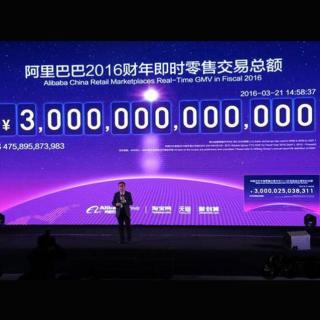
介绍:
TY: People tend to compare these two because the trading volume of Alibaba is about to surpass that of Wal-Mart, and some say it is online shopping platforms like Alibaba that have pushed traditional retailers like Wal-Mart into a harder situation. Does that make any sense to you?
CJH: I would say it’s called disruptive innovation or disruptive construction; it will destroy some businesses, but it will create many other business opportunities. In order to evaluate such platforms, let’s look at consumers’ welfare. Does Alibaba improve consumers’ welfare? As any consumer would agree, it does improve consumers’ welfare. How about job creation? Does Alibaba create more jobs, or destroy more jobs? I would say it creates more jobs. It’s something like when the train came into this world. The traditional horse-drawn vehicles were kind of worried, I would say, but just because they were worried, the train still continued to grow and even grow faster. Same for the internet: I would say definitely, it will affect traditional shops and businesses, and the question is what the traditional shops and businesses should do to improve, to compete with e-commerce, not just to stop e-commerce – of course, they cannot stop it – for their own growth.
TY: Some argue that this e-commerce business model is affecting or even damaging business culture that’s been there for hundreds of years. What’s your take on that?
CJH: So what’s the definition of business culture, first of all? Right? Any culture is changing. Even business culture is changing. Can we say that today’s internet shopping culture is not part of business culture, or new business culture? Or that we should keep the traditional one? I would say, yes, it may be creating a new business culture, a new shopping culture: that is online shopping together with some offline shopping or other shopping. I don’t think it’s a negative thing. I would say, maybe it’s creating a new culture.
TY: Despite the fast growth in the number of online shopping transactions, analysts say the marginal efficiency of those online platforms’ demographic dividend is on the decline. How so? What is demographic dividend marginal efficiency?
CJH: Actually, this is the first time I’ve heard that term. I think maybe it’s broadly related to demographic dividend, which means that in the past, China’s dependency ratio was very low. We know that the population is ageing, and that we’re getting more older people, and we know that older people tend to shop less online. That might mean the demographic dividend is declining. However, I think that for this younger generation, and those in their middle age, now they are used to online shopping, even when they go into their mature age or old age, I would say they have learned the skill, learned the rules of online shopping. They will continue their shopping habits online. Then we have the younger generation. We know that this younger generation in their twenties, and teenagers, they grew up with the internet. They do almost everything online. This generation definitely can make the internet shopping, the e-commerce, grow faster. I do not think this demographic dividend, and its decline, will affect online shopping that much.
大家还在听

